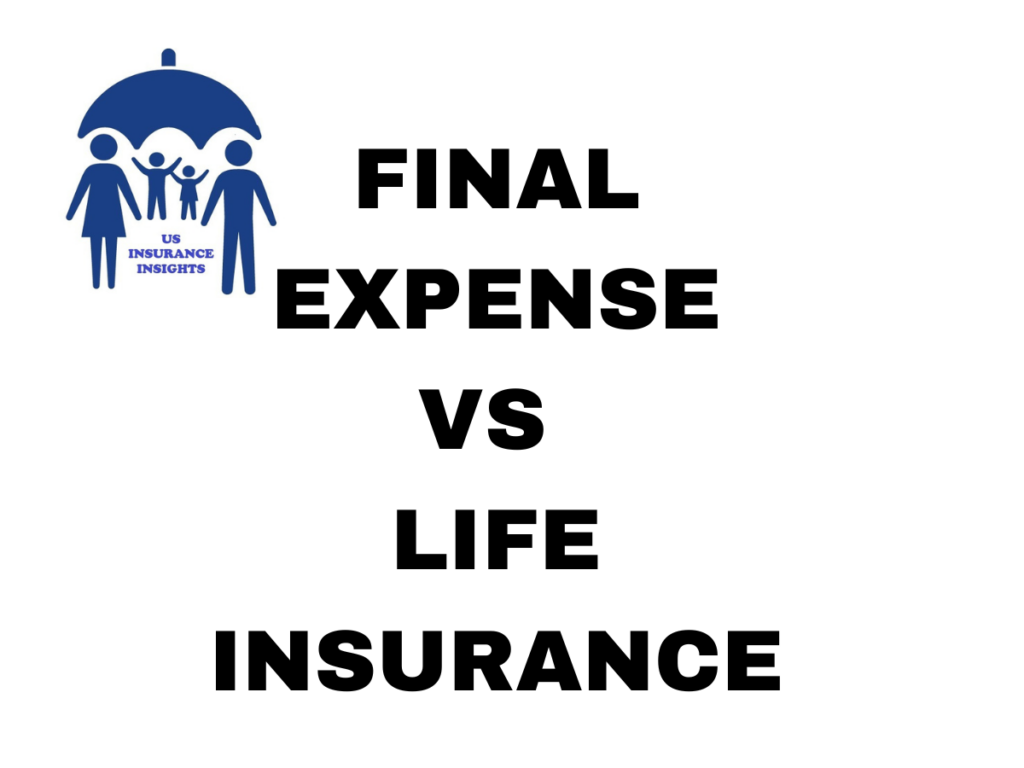Understanding the Difference Between Final Expense and Life Insurance
Final expense vs life insurance is commonly asked when thinking about the near and distant future. Each one helps protect your finances, but for its own distinct reason. This will help you make a correct and well-informed decision about choosing insurance.
There are many types of life insurance and most help replace lost earnings, repay debts and offer support to the heirs. If you need to pay for funeral costs and related end-of-life charges, then final expense insurance is the kind to choose. We will take a close look at them now so you can decide what is best.
Difference between final expense and life insurance
Also called burial insurance or funeral insurance, final expense insurance is a compact life insurance plan meant to meet the expenses linked to death. This covers the costs of funerals, any unpaid medical bills and all unpaid debts.
Important Points about Final Expense Insurance
- At times, insurance companies will only cover $5,000 to $50,000 in losses.
- You can be approved easily since you do not have to take any medical tests.
- Fast Payout – Beneficiaries get their money soon after the insurance claim is made, easing their money problems.
- Lower Monthly Bills – Affordable premiums that are lower than the payments for bigger insurance policies.
- Premiums must be paid to keep the insurance win in place, so there is no expiration date.
The answer to this question is, what types of people may want to use final expense insurance?
- People aged sixty or older searching for a low-cost way to pay for funeral costs.
- People living with health issues that prevent them from receiving regular life insurance.
- People who do not wish to leave their families with financial problems.
What is the meaning of Life Insurance?
The money paid out from a life insurance policy can help family members in different ways. Some kinds of term life insurance are called life and whole life which help cover different needs.
Different Kinds of Life Insurance
1. Term life insurance is a type of life insurance policy offered for a certain amount of time.
- Includes a particular period such as 10, 20 or 30 years.
- The plan gives you significant coverage for less money.
- It helps most in replacing income and protecting from debt.
2. Whole Life plans
- Lets policyholders have coverage for the rest of their lives and accumulate additional cash.
- Prices are higher, but the savings account gets bigger with time.
- Are perfect for planning your estate and saving your finances in the long run.
Who Needs To Consider Getting Life Insurance?
- People who wish to take care of their families.
- Those who have taken out a mortgage do so to protect their investment.
- People who want to protect themselves financially by insuring their businesses.
The main differences between Final Expense and Life Insurance are explained here.
- This type of insurance, life insurance is useful for seniors or people with illnesses needing quick payouts.
- The method for choosing between final expense and life insurance
- If you’re not exactly sure about final expense vs life insurance, take a look at these questions:
What financial goal do you have?
- If your only concern is paying for funeral charges, try final expense insurance.
- To get more financial security, get life insurance policies.
How much money are you able to invest?
- The cost of final expense insurance is lower than that of life insurance.
- Life insurance is more expensive, yet it includes higher levels of security.
Are there anyone who depends on you for support?
- If that is the case, your life insurance coverage will provide for your family members.
- If that’s the case, final expense insurance may do the job instead.
Are you currently owing money or do you have assets?
- If you have a big mortgage or owe a lot in debt, you may want to consider life insurance.
- If you are planning for funeral costs, getting final expense insurance is a good choice.
Choosing What Type of Policy to Use
Let us use John and Mary as examples for this discussion.
- John is a retirement age of 65 and does not have children to support. He wants to set aside what is needed for his funeral so that his kids won’t have to pay it themselves. He should consider final expense insurance as his best choice.
- Mary is 40 years old, has two kids and is still paying for her mortgage. If something unexpected happens to her, her family’s financial situation would be difficult. It is a good idea to get term life insurance due to the higher amount of coverage offered at a cheap rate.
Each policy is useful in its own way and which one you pick should match your personal situation.
Where do you Find the Best Final Expense or Life Insurance?
Quotes from respected insurance companies should be compared before you make a choice. Try to select companies that provide the services you seek.
- Several different ways to pay
- Rapid claims handling
- A website with many good reviews
- Affordable premiums
On this site, you can view the coverage of many insurers to find what suits you best.
Final Thoughts
Whether you go for final expense or life insurance depends on the demands of your finances and the future you plan for. When you wish for an easy and budget-friendly plan for end-of-life expenses, you should consider final expense insurance. If you want to ensure your family’s long-term finances are safe, life insurance offers more benefits.
Choosing any sort of policy is good, since it brings a sense of relief knowing your loved ones are looked after.
NICE INFORMATION


1 thought on “Final Expense vs Life Insurance: Secure Your Future Wisely”